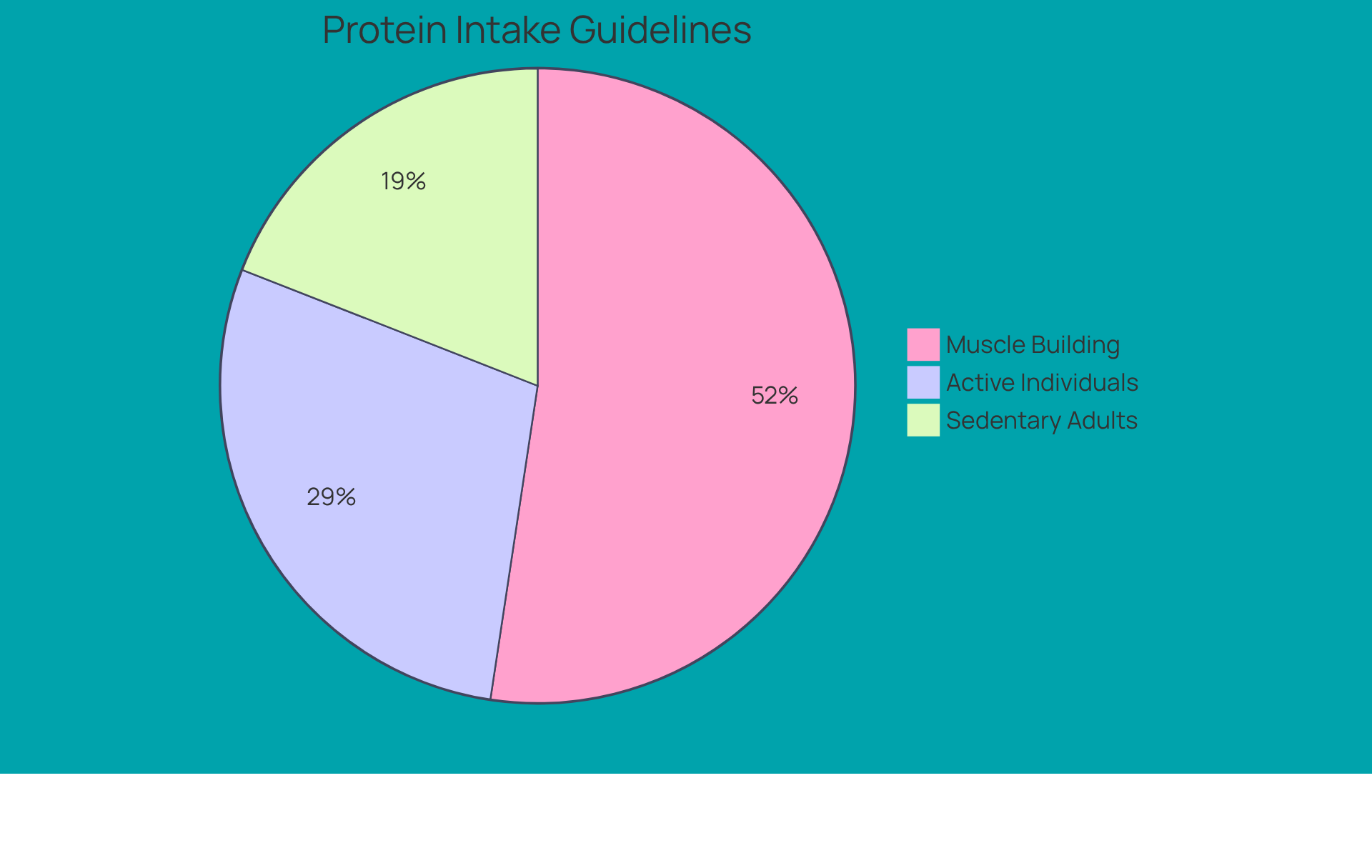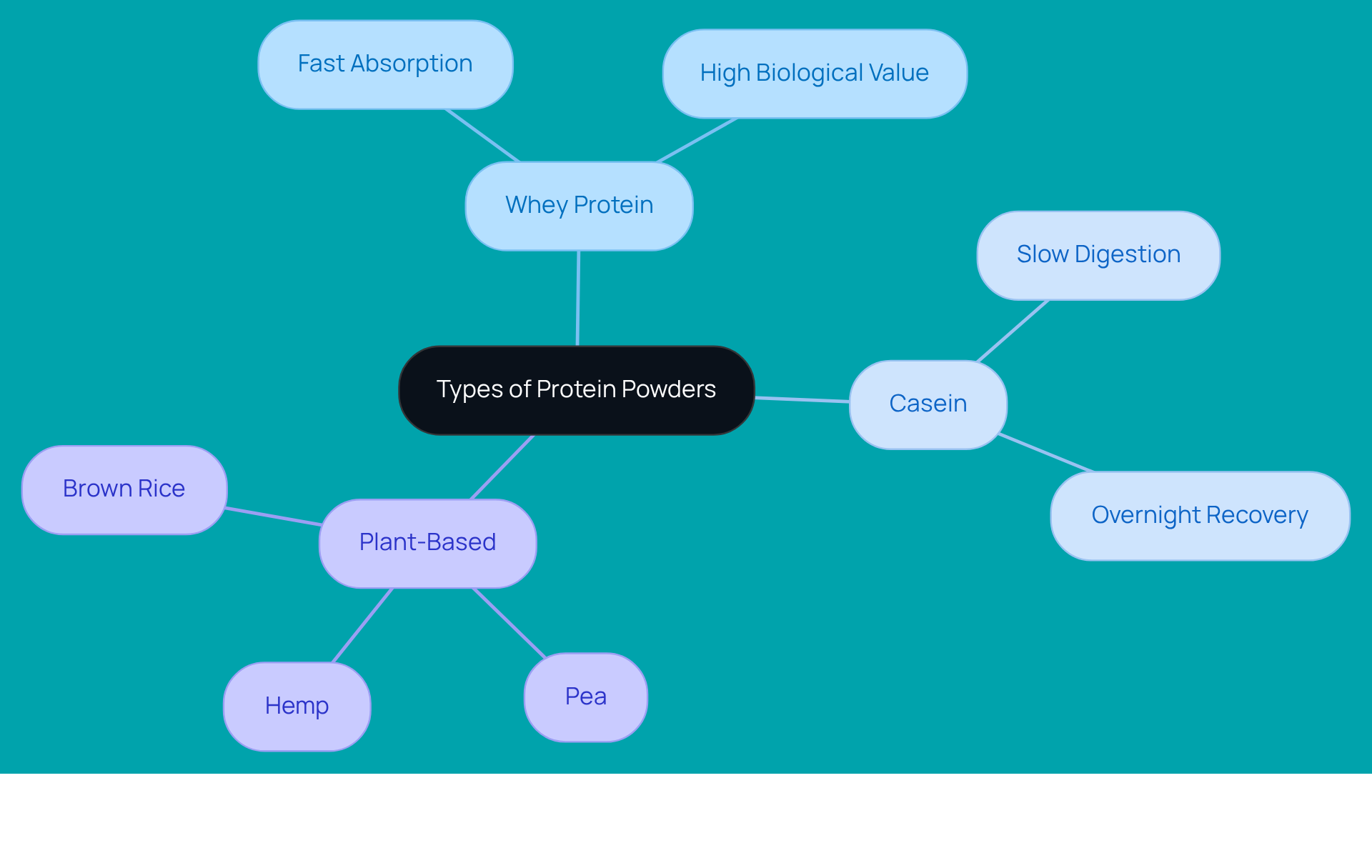Overview
This article invites you to explore how to assess your personal needs and make informed choices about protein supplements. It recognizes that understanding your individual protein requirements, which vary based on your activity levels and health goals, is crucial. Imagine how empowering it can be to select high-quality products that have undergone third-party testing, ensuring both safety and efficacy. By prioritizing these factors, you are taking a significant step towards your wellness journey. Together, let's navigate this path and make choices that support your health and well-being.
Introduction
The growing popularity of protein supplements reflects a significant shift in how we approach health and fitness together. With the supplement market projected to soar to $10.80 billion by 2030, understanding how to choose the right protein source is more crucial than ever. This guide delves into the essential factors to consider when assessing your protein needs, exploring various types of supplements, and ensuring quality in product selection.
You might be wondering: how can you navigate the overwhelming array of options while avoiding potential pitfalls in protein supplementation? Imagine feeling confident in your choices and empowered on your wellness journey.
Understand the Role of Protein Supplements
Protein supplements offer a convenient way to enhance your dietary intake, which is vital for muscle recovery, development, and overall well-being. If you’re an athlete, bodybuilder, or someone recovering from an injury, a protein supplement can be especially beneficial for meeting your increased nutrient needs. Imagine how improving your nutrient intake could support your body in various functions, including hormone production, immune response, and maintaining healthy skin and hair. Understanding these roles can empower you to make informed decisions about incorporating dietary supplements into your nutrition.
However, it’s essential to be aware of the potential health risks associated with excessive intake of amino acids. For instance, consuming too much can lead to kidney strain, particularly when intake exceeds recommended levels. While athletes may benefit from consuming between 1.4 to 2.0 grams of protein per kilogram of body weight, going beyond 1.6 grams may not yield additional advantages.
There are many types of protein supplements available, including whey, soy, and plant-based options, each offering unique benefits. For example, a protein supplement such as whey is known for its quick absorption and effectiveness in promoting muscle synthesis, while soy can positively affect your lipid profiles.
Statistics show that the supplement market is projected to reach $10.80 billion by 2030, highlighting its growing popularity among health-conscious consumers like you. Yet, it’s important to remember that the dietary supplements, raising concerns about potential contamination with heavy metals. Therefore, choosing high-quality products from reputable brands is crucial for your safety and health.
Nutritionists emphasize that adequate dietary intake supports the production of hormones that regulate metabolism and immune function, contributing to your overall well-being. By considering these factors, you can make informed choices about your supplementation that align with your health goals. Together, let’s take the next step in your wellness journey and ensure you’re supporting your body in the best way possible.

Assess Your Protein Requirements
Understanding your nutrient requirements is an important step toward achieving your wellness goals. To begin, consider your daily intake needs, which depend on your body weight and activity level. For most sedentary adults, a general guideline is to consume about 0.8 grams of nutrients per kilogram of body weight. However, if you’re active or aiming to build muscle, this can increase to between 1.2 and 2.2 grams per kilogram.
You might be wondering how to determine your specific needs. Utilizing online nutrient calculators can be a helpful starting point, or you may find it beneficial to consult with a nutritionist for a more tailored assessment. Remember, factors such as age, gender, and any specific health conditions you may have can also play a significant role in shaping your dietary requirements.
Imagine feeling confident in your nutritional choices, knowing they are aligned with your unique needs. Together, let’s take that next step toward a healthier you by exploring these options and seeking the support you deserve.

Explore Different Types of Protein Powders
Choosing the right supplement can feel overwhelming, but understanding your options can make all the difference. There are several varieties of supplements available, each with distinct characteristics that cater to different needs. For instance, whey protein is popular for its fast absorption and high biological value, making it an excellent choice for post-workout recovery. Imagine feeling revitalized and ready to take on your next challenge!
On the other hand, casein offers the benefit of slow digestion, providing a consistent release of amino acids. This is particularly advantageous for overnight muscle recovery, allowing you to wake up feeling refreshed and ready to tackle the day. If you follow a vegan lifestyle or have lactose intolerance, plant-based sources such as pea, hemp, and brown rice are wonderful alternatives that nourish your body without compromise.
Each type of supplement has its unique advantages, and it’s essential to consider your dietary restrictions and fitness objectives when making a choice. Remember, you are not alone in this journey—many others share similar concerns and aspirations. Together, let’s explore what works best for you and empower your wellness journey!

Evaluate and Select Quality Protein Supplements
When selecting nutritional alternatives, it's important to prioritize items that have undergone third-party testing. This step ensures the quality and safety of the products you choose. You might be wondering why this matters—scrutinizing the for artificial additives, fillers, or allergens is essential, as these can detract from the product's effectiveness. A high-quality dietary addition typically has a concise ingredient list, focusing mainly on the source of the nutrients you need.
Certifications like NSF Certified for Sport or Informed Choice can offer you additional reassurance regarding product safety and compliance with industry standards. Additionally, take a moment to assess the protein content per serving and the amino acid profile; this will help ensure the product aligns with your dietary needs. As industry specialists highlight, recognizing the significance of third-party testing is crucial for making informed decisions in the nutritional market. In fact, more than 90% of consumers believe it is vital to understand if a product has undergone this testing.
Kelli McGrane, MS, RD, emphasizes, "Safety and quality are the most important factors to consider when shopping for vitamins and nutritional aids." Furthermore, the NSF/ANSI 173-2021 certification stands out as the only published standard for third-party certification, underscoring the importance of product safety.
Imagine discovering high-quality protein supplements with minimal ingredients like whey protein isolate or pea protein. These options focus on delivering effective nutrition without unnecessary additives. Together, we can make informed choices that support our wellness journeys.

Conclusion
Understanding the importance of protein supplements is crucial for anyone looking to enhance their dietary intake and support their fitness goals. These supplements can play a significant role in muscle recovery, development, and overall health, particularly for athletes and those recovering from injuries. However, it is vital to approach supplementation wisely, considering both the benefits and potential risks associated with excessive protein intake.
Imagine if you could significantly improve your recovery and overall well-being. The article delves into various aspects of protein supplementation, including the different types available—such as whey, casein, and plant-based proteins—and the importance of assessing individual protein needs based on factors like activity level and body weight. It emphasizes the necessity of selecting high-quality products that have undergone third-party testing to ensure safety and effectiveness. By understanding your unique dietary requirements and making informed choices, you can enhance your nutritional support.
Ultimately, the journey to optimal health through protein supplementation involves careful consideration and personal reflection. As the market for these products continues to grow, prioritizing quality and understanding individual needs will empower you to make choices that align with your health objectives. You might be wondering how to start this journey—taking the time to evaluate protein supplements can lead to improved performance, recovery, and overall well-being. Embrace this opportunity to support your health journey with knowledge and confidence. Together, we can navigate the world of protein supplementation with care and understanding.
Frequently Asked Questions
What are protein supplements and who can benefit from them?
Protein supplements are products that enhance dietary protein intake, which is vital for muscle recovery, development, and overall well-being. They can be especially beneficial for athletes, bodybuilders, and individuals recovering from injuries who have increased nutrient needs.
What roles do protein and protein supplements play in the body?
Protein supports various bodily functions, including hormone production, immune response, and maintaining healthy skin and hair. Protein supplements can help improve nutrient intake, aiding these functions.
What are the potential health risks of excessive protein intake?
Consuming too much protein, particularly amino acids, can lead to kidney strain. It is recommended that athletes consume between 1.4 to 2.0 grams of protein per kilogram of body weight, but exceeding 1.6 grams may not provide additional benefits.
What types of protein supplements are available and what are their benefits?
There are various types of protein supplements, including whey, soy, and plant-based options. Whey protein is known for its quick absorption and effectiveness in promoting muscle synthesis, while soy protein can have a positive effect on lipid profiles.
What is the current market trend for protein supplements?
The protein supplement market is projected to reach $10.80 billion by 2030, indicating its growing popularity among health-conscious consumers.
Are protein supplements regulated by the FDA?
No, the FDA does not regulate dietary supplements, which raises concerns about potential contamination with heavy metals. It is important to choose high-quality products from reputable brands for safety and health.
How does adequate dietary intake of protein affect overall well-being?
Adequate protein intake supports the production of hormones that regulate metabolism and immune function, contributing to overall health and well-being.




